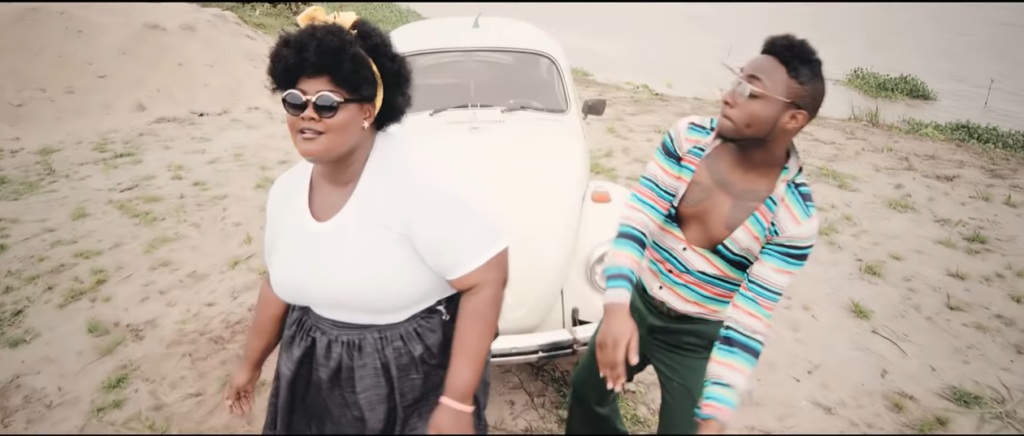We live in a patriarchal society, and when we speak of patriarchy, it’s not just about men, but a system. A social system in which men hold the power, leaving women largely excluded from it. And as with all social systems, it has mores, norms and institutions put in place to sustain it.
Patriarchy is enabled and sustained by men and women. By fathers and mothers who give preferential treatment to their sons at the expense of their daughters; by men and women who fail to call out misogynistic friends in their peer groups; by the little things we do every day to give preference to men or to treat women in stereotypical ways; by the lyrics and music videos that are part of pop culture.
Patriarchy goes hand in hand with misogyny — prejudice against, contempt for, and hatred of women — and nowhere is misogyny rifer than in pop culture. It is evident in the women-demeaning lyrics and the hypersexual depictions of women in music videos.
Media, which serves these lyrics and music videos, is in a precarious position as it performs somewhat conflicting functions: agenda-setting and reflecting society.
“You can tell through music where we are as a people; you can tell the social climate,” said Amina Diop, founder and CEO of Diop Agency, a global talent management company in a documentary about video vixens (women playing characters in music videos). The documentary that aired on BET, a cable television channel that targets African American audiences, looked into how vixens changed the music industry.
Nigerian music video director and internationally-trained dancer Obi Jackson says that both men and women can be vixens, regardless of what they are doing in the video.
“Everybody on my set is a vixen, whether male or female, and regardless of what they are doing in the video. I can call you a dancer and decide to tell you not to dance, (but) just stand and look. At that point, you are a vixen,” says Jackson, who has directed videos like Tisho’s In My Room.

However, the term vixen is often associated with women. One such woman is Kay (who asked not to be identified by her real name). Kay, a university student, doesn’t think of the subliminal messages the videos she features in send out. While she is not blind to the sexualised perceptions that many people have of video vixens, for her, it’s like any other job, and it earns her an extra coin.
“People have wrong ideas of what a vixen is. They think being a vixen equals being a run babe (Nigerian slang for sex worker), but a girl who will do runs will do runs, no matter what profession she is in. This is our hustle. For some, like me, it’s a side hustle; for others, it’s their main job, and they take care of their families from this work,” she says, adding that she doesn’t plan on being a vixen forever.
In most afro-pop music videos, the female characters (vixens) play to the male gaze in a hypersexual way that buttresses gender stereotypes and reaffirms toxic subliminal messages. It can be argued that afro-pop music videos show us an alternate way of viewing beauty, by veering off the feminine beauty ideal of thin, tall and white/light-skinned. However, one still sees a certain notion of beauty being foisted on African women — “thick” with slim waists, wide hips and big breasts.
A few musicians appear to go against this beauty ideal, such as in Davido’s Dodo, where a plus-sized woman played his love interest. It appears radical until the viewer realises that she is only his love interest because she slipped something in his drink that made her appear slimmer.
One would expect music made by women to follow different trajectories that are more affirming of women. What place does their art occupy in the face of the misogyny in afro-pop culture? An ideal situation would be having more women in the music industry – as musicians, songwriters, music video producers – with the hope that they would produce wholesome content that shows women in good light.
However, in U.N.I.T.Y (co-written with Keir Lamont Gist or KayGee) Queen Latiffah rapped: Love a black woman from infinity to infinity. You ain’t a bitch or a ho, here we go; and in Gwen Gutherie’s Ain’t Nothing Going On But the Rent, she sang: No romance without finance. You need to have a J-O-B if you wanna be with me.
The former has women-demeaning lyrics, while the latter perpetuates the common depiction of women as materialistic. Given that Queen Latiffah and Gwen Guthrie sang in a different era (the late 80s and early 90s), one would expect that contemporary female musicians have changed the scene. Analysing 24 afro-pop music videos by women such as Niniola’s Saro, Vanessa Mdee’s Niroge, and Tisho’s In My Room one can see that female artistes depict women differently, albeit slightly, from their male counterparts. The occurrence of semi-nude women is minimal as can be seen when you compare Olamide’s Story for the Gods (2014) and Noni Zondi’s Come Get It (2011). The difference is also evident when you compare Wizkid’s Ginger (2021) and Tiwa Savage’s Koroba (2020).
Contemporary music
Nevertheless, even contemporary music by female musicians appears to perpetuate patriarchal norms. For instance, in Ferarri, Yemi Alade sings: “If you love me you go buy me Ferrari.”
How then do we call out male artistes who depict women as materialistic while reaffirming romantic love (and sex) as transactional?
One could imagine vixens unionising to eradicate the misogynistic portrayal of women in music videos. However, Kay, the previously quoted vixen, says that unionising to bring about changes in the way music videos depict women is utopian.
“Coming together for change cannot happen,” she says at first.
And after some thought, she adds: “But then again, things can change … it’s just that it is not in the hands of video vixens. We don’t have much of a say. I am not going to start explaining to an artiste or director that their video is sexist. He will find 20 other girls who are willing to be in the video,” Kay told AWiM News.
Doused in misogyny
The music industry is doused in misogyny, but Kay says that there are some women who enjoy the video vixen role. However, she acknowledges that most of her colleagues are in it for quick cash.
“Although there are other things I could do, being a vixen brings in the kind of cash that would make sense. Plus, every job has a dark side: Men disrespect women everywhere; this industry is not an exception. We just take the bad side of this job, I guess,” says Kay.
Jackson, the music video director, also thinks that change through unionising might be an uphill task for that very reason: It’s all about sales.
“There are directors who hold the camera because they need to make money. An artiste knows what his audience wants. He’s trying to put money in his account. The director might want to do something different, but it all boils down to what the artiste wants. Even if we unionise, there would be people who would stand against it,” he told AWiM News.
Cash for objectification
As Jackson observes, everyone wants what will put money in their pocket; everything else, including the messages that perpetuate the objectification of women, is secondary. For vixens, a certain look can mean more attention, and in turn, more money.
In the book Confessions of a Video Vixen, Karrine Steffans wrote: “I would do the most outrageous things possible to be in those kinds of videos. Whatever the other girls wouldn’t do, I was up for.”
Once the camera crew got a glimpse of her outrageous costume, all the cameras were turned on her. This attention had other video vixens and their managers complaining to the camera crew.
“Nivea’s manager complained that his artist was the star, and she was not being interviewed, yet I was. It was a testament to the old adage that sex sells,” Karrine wrote. The incident happened on the set of Mystical’s Danger featuring Nivea (2000).
For others like Samklef, a musician and producer from Nigeria, the objectification is “a joke” Recently, Samklef was called out for posting a tweet sexualising Tems, another musician. In his defense, he said it was humour, and that he had gotten the tweet idea from a male Instagram user. In another instance, when students of Spellman University called out Nelly for Tip Drill (2001), his major defense was that he was putting out what people wanted to see.
Nevertheless, there is hope if trends in toxic racist narratives are anything to go by. In a graph, Murs of HipHopDX on the Breakdown, shares trends in the use of the words “nigger” and “ass” in hip-hop music. The use of these words has reduced. However, the use of the words “bitch” and “ho” has been on the rise. It’s easier to address racism (because men feel the pinch), but not misogynoir.
Feminism is anti-patriarchy. It truly desires for women to pursue their passions and to live their best lives. A core concept of feminism is that women are empowered to make choices and wield autonomy in all facets of life. Being a vixen in videos that demean women is financially, and possibly sexually empowering, but how powerful is women’s power if it reinforces the ideas that subjugate us?




